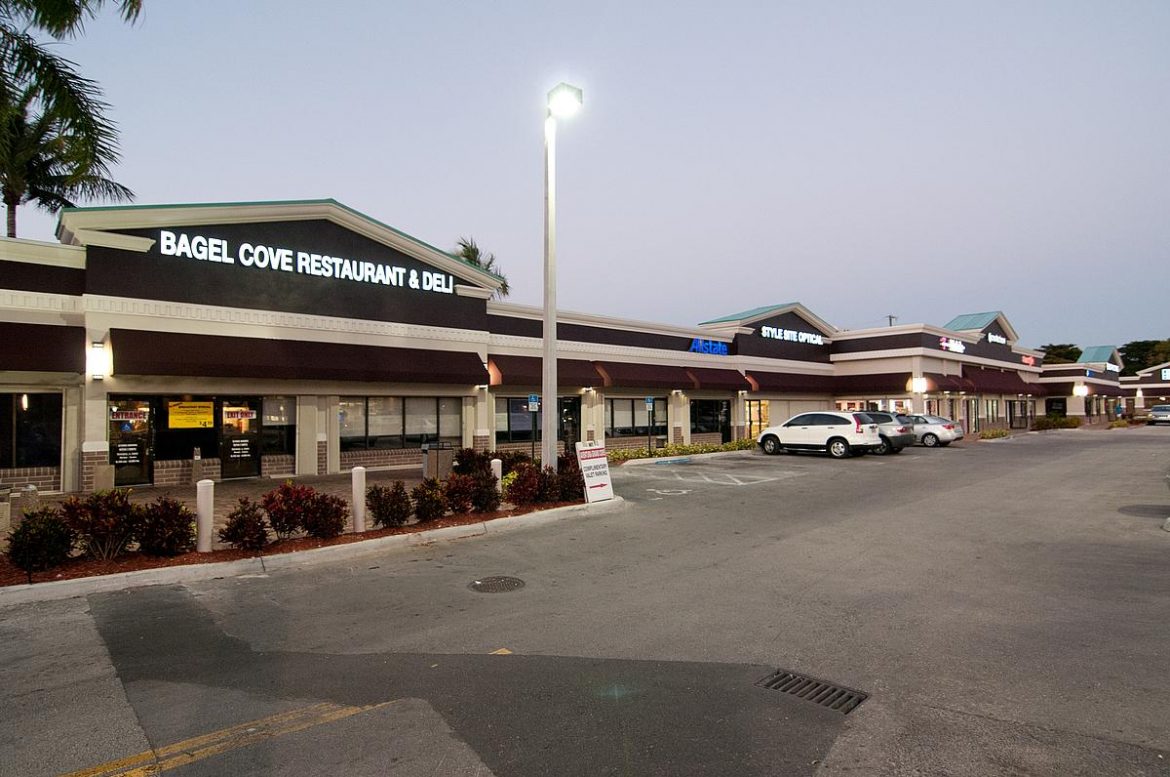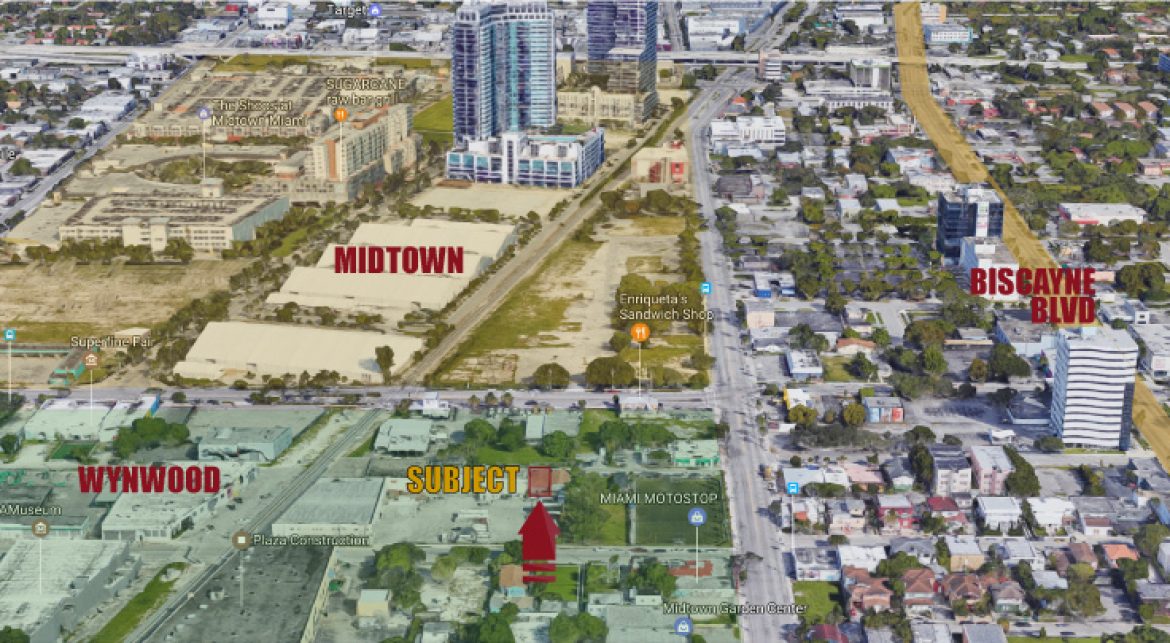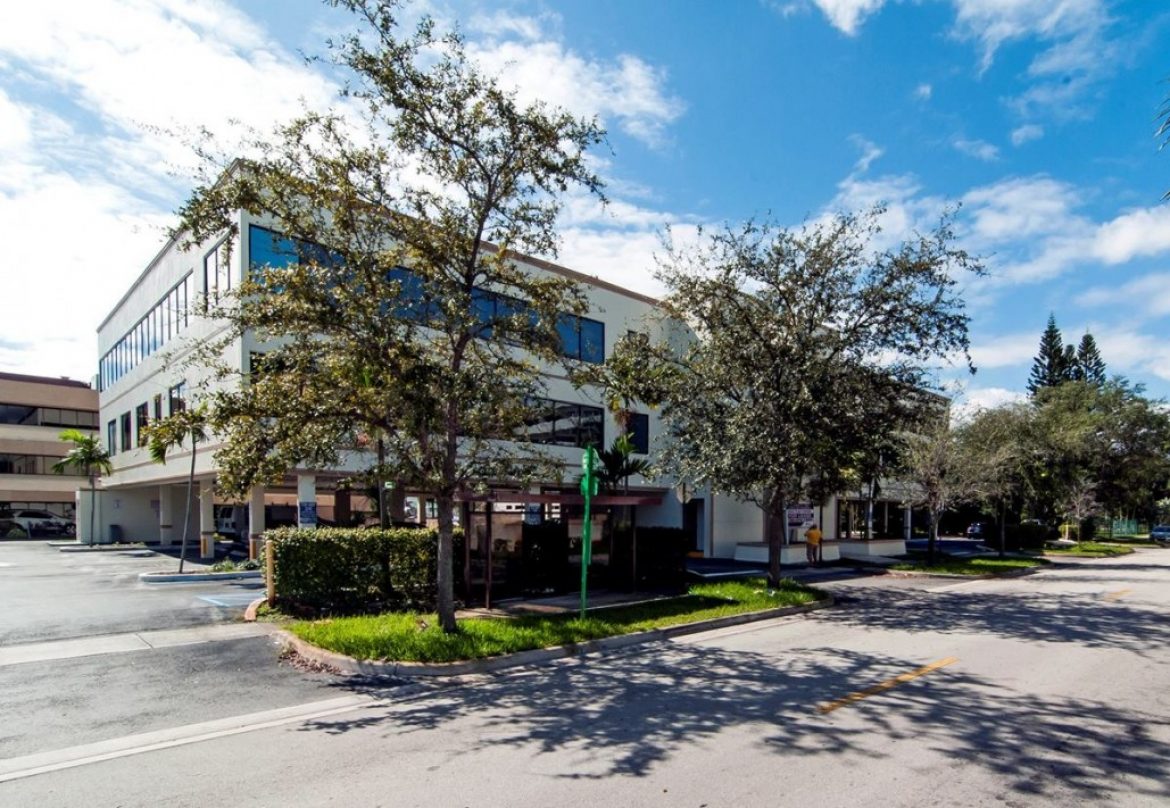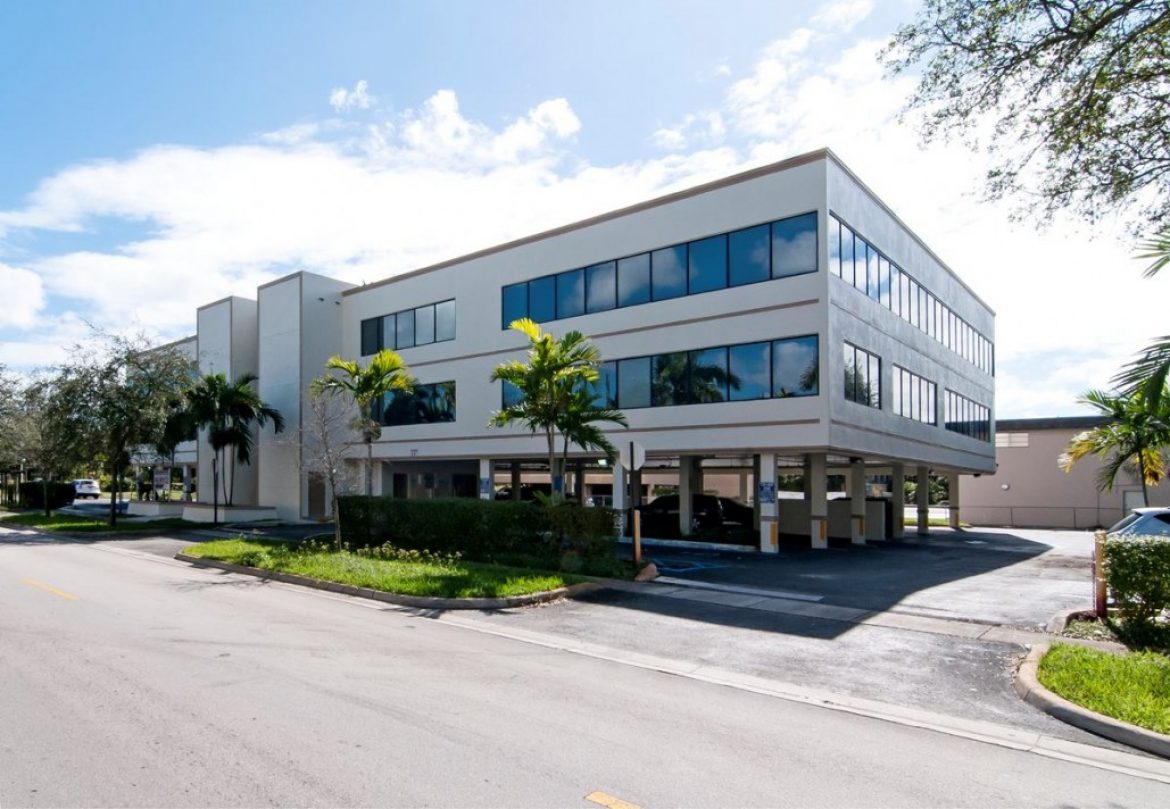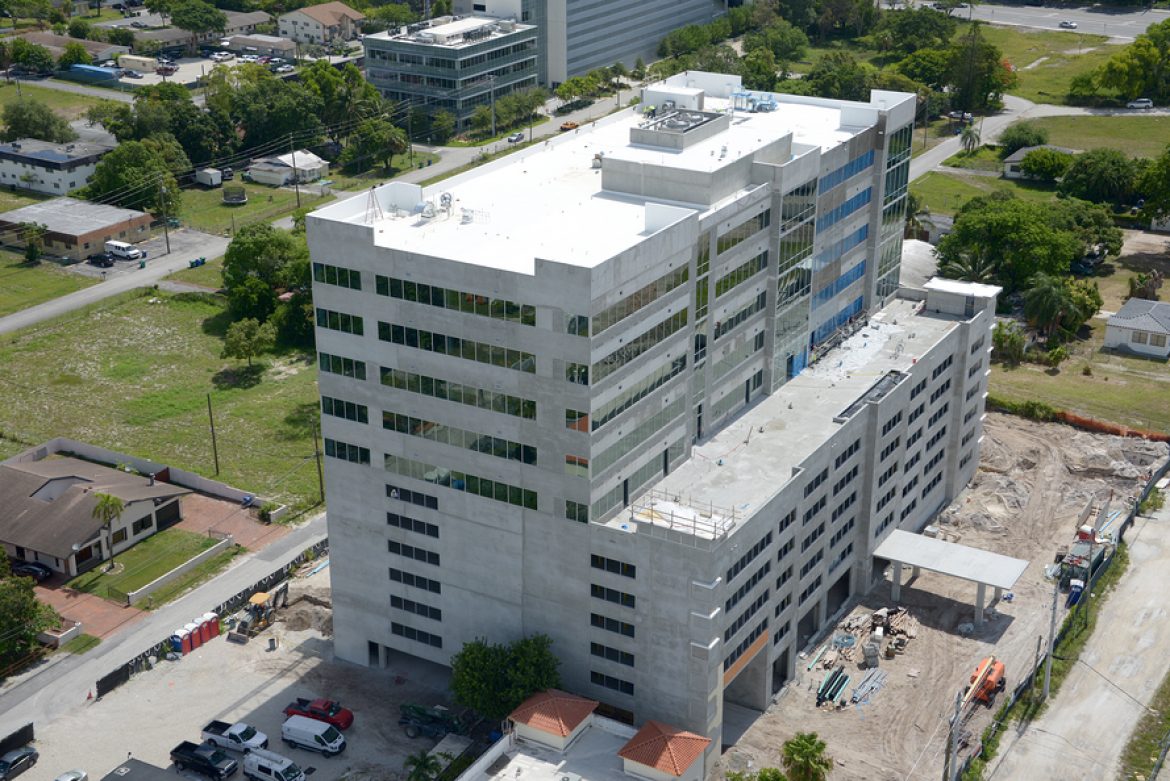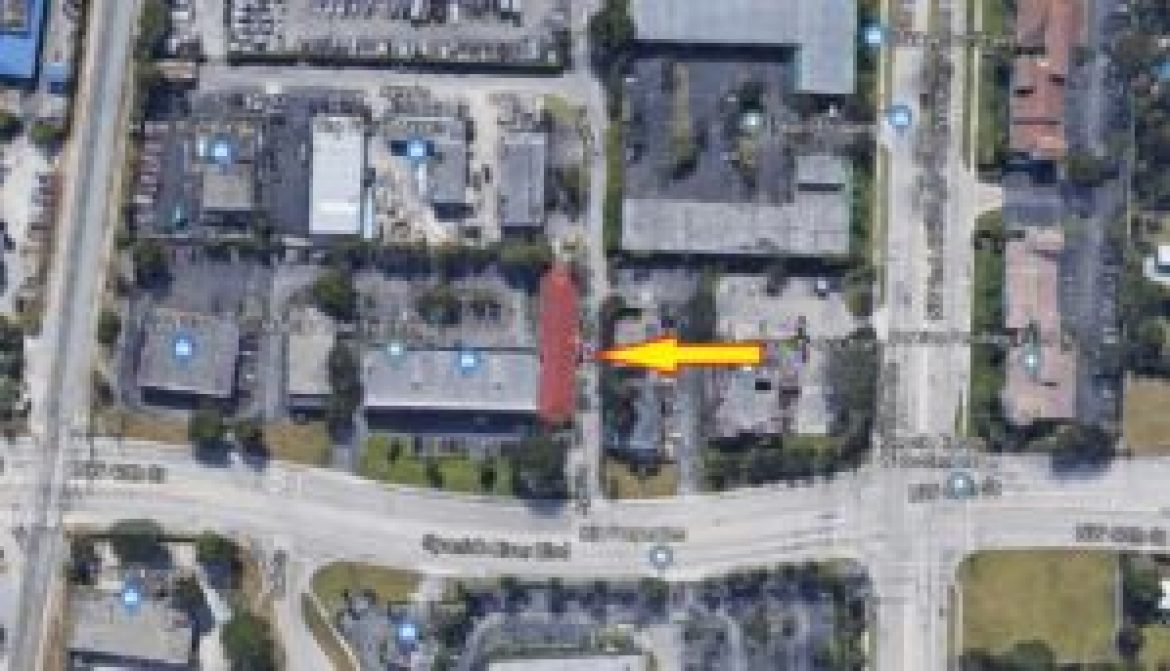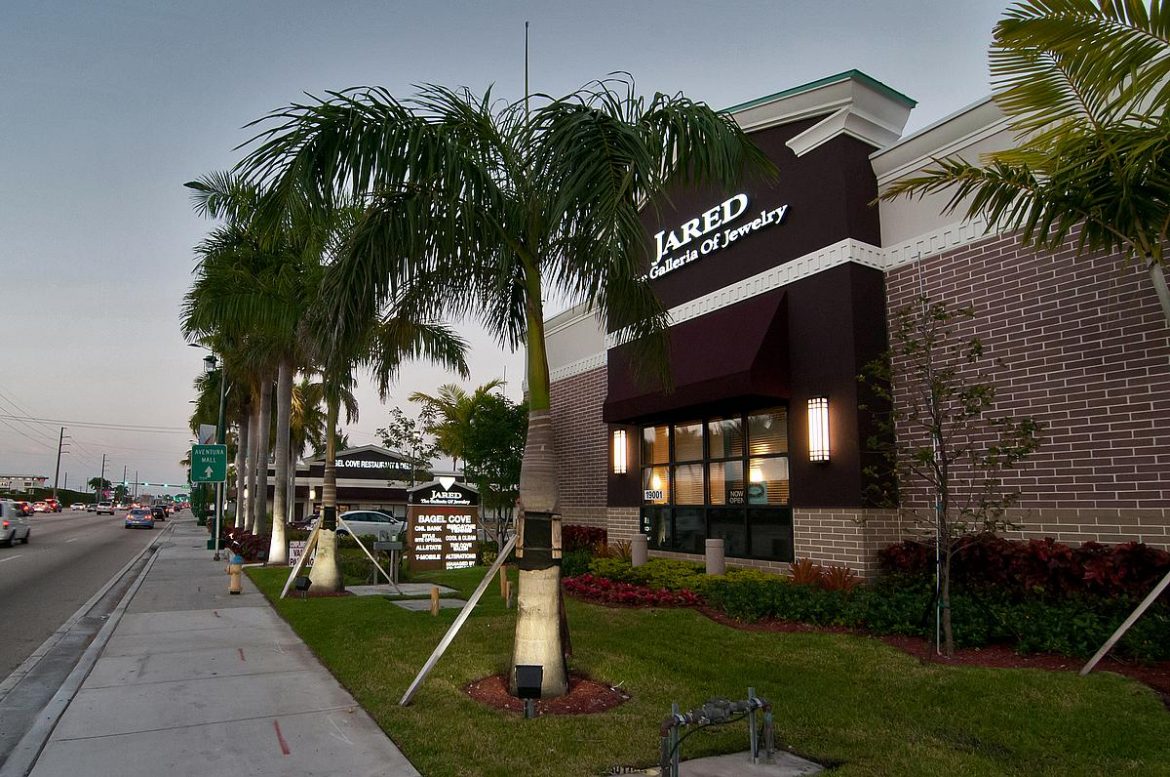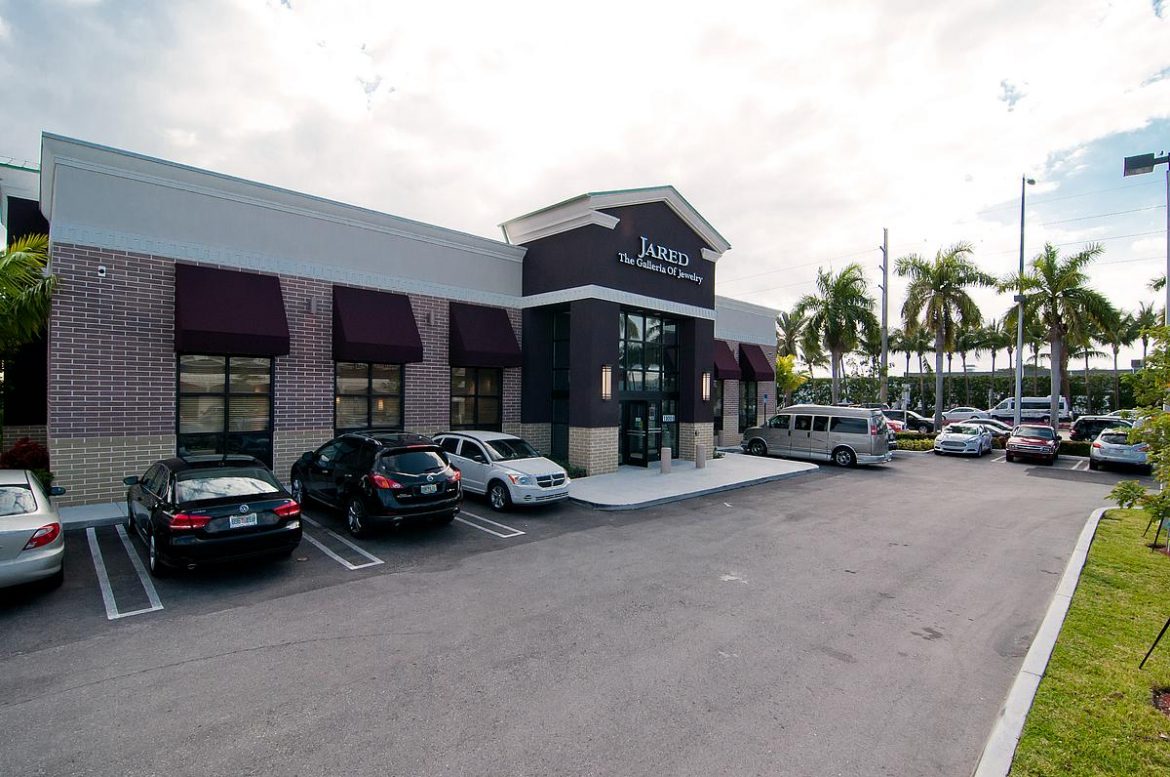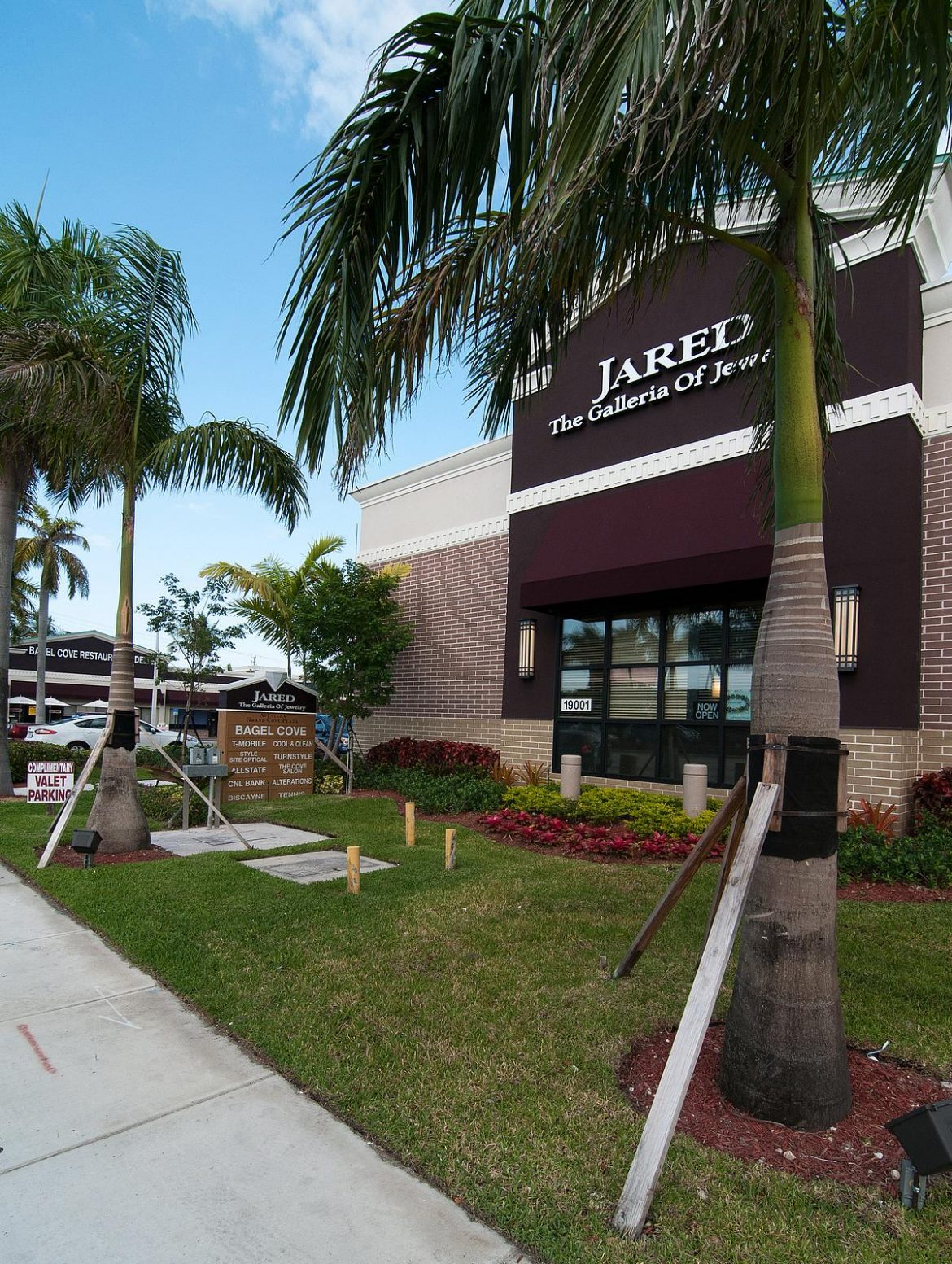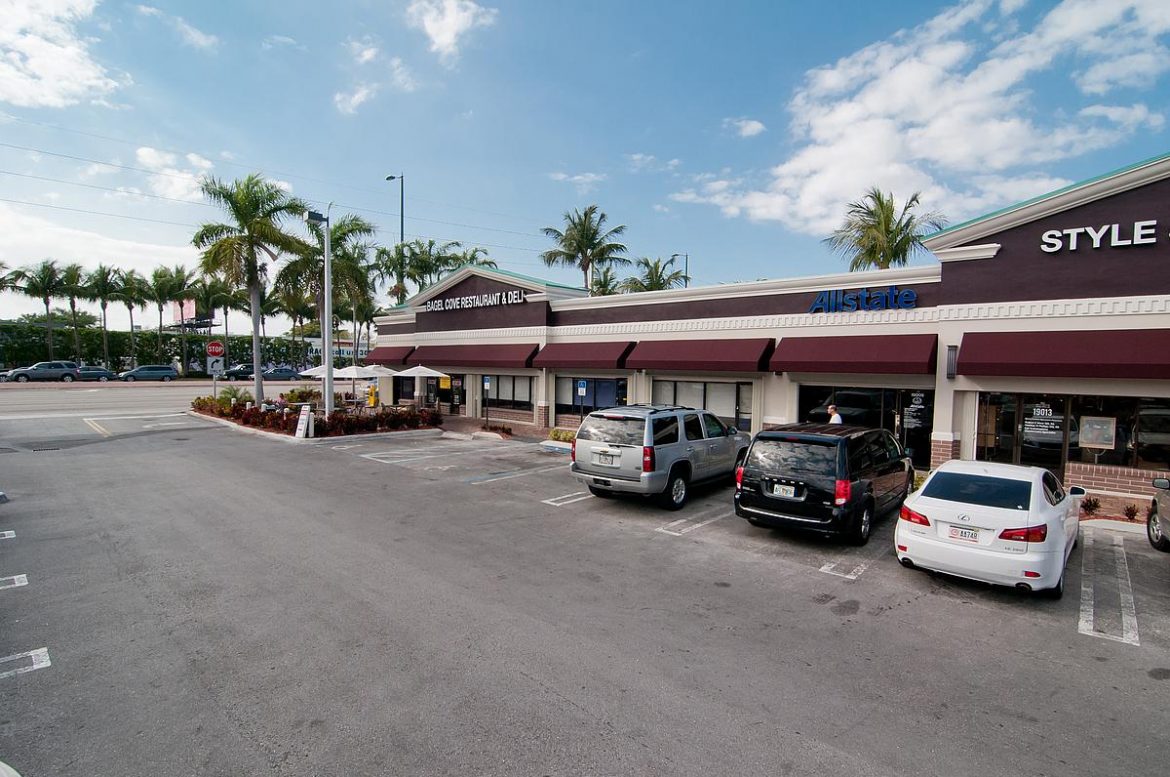It’s been an atypical summer for retailers and shopping center owners in the Sunshine State. There are no Hollywood blockbusters debuting in Florida’s movie theaters, bars remain closed for the time being and shops and restaurants aren’t packed with domestic and international tourists visiting Disney World, Port of Miami’s cruise terminals or any of the states numerous beaches at the level they would in a normal season.
The outbreak of COVID-19 has redefined the consumer experience for retail the past several months, but even though it looks and feels different, owners and property managers have reasons for optimism. Giants in the retail industry such as Walmart, Target, The Home Depot, Publix and Lowe’s Home Improvement, among others, are enjoying surging in-store and e-commerce sales.
Other retail categories have boosted their sales during the pandemic as well. Deborah Butler, president of Butler Enterprises, says that the Total Wine & More location at Butler Town Center in Gainesville is a perfect example of a retailer benefitting from the current atmosphere.
“Total Wine did 60 percent over what they planned,” says Butler. “People want their wine and cocktails and couldn’t get them at bars or restaurants.”
Guidelines remain in place for the state’s retail base, including a 50 percent maximum capacity for restaurants, many of which have opted to close their dining rooms and focus on their to-go, delivery and drive-thru options.
Despite the restrictions, Andie Blade, principal of National Retail Advisory Group, says that retail traffic remains lively, especially in her hometown of Miami.
“When I’m out and about in the Design District or Bal Harbour, everyone is out shopping and everyone has their masks on,” says Blade. “The parking lots are full. It’s not pre-COVID-19 traffic, but people are out. We’ve been surging in Miami, so we have a lot of precautions still in place.”
Retailers are also opening along the market’s heralded high street, Lincoln Road in Miami Beach. Lyle Stern, president of Koniver Stern Group and board member of the Lincoln Road Business Improvement District (BID), says that the corridor’s recent openings are a sign of confidence.
“Amazon is moving forward with its four-star store (the first one in Miami-Dade or Broward counties); YoYoSo is opening its first Florida location on Lincoln Road; Nespresso opened its new flagship store just a few weeks ago in the height of the pandemic; and Dr. Martens also recently opened.”
Shopping center developers are busy around the state signing and opening retailers in some of the denser submarkets. Beth Azor, owner of Azor Advisory Services Inc. in Broward County, owns six shopping centers in Florida. Azor says she currently has 11 letters of intent in the pipeline, which is the most she’s handled at a given time in the past three years.
Bromley Cos. recently signed a lease with Royal Pets Market & Resort to join the tenancy at its $500 million Midtown Tampa project. The veterinary and dog daycare provider will occupy 8,000 square feet on the ground floor of the Novel Midtown Tampa apartment building.
Butler Enterprises recently welcomed a new REI store at Butler Town Center.
“REI didn’t have a grand opening, but they’re thrilled,” says Butler. “There’s so much pent-up demand for it. Our property is surrounded by rivers, lakes and streams. People come here from all over the world to hike and tube.”
Similarly, there’s demand for casual wear as a large contingent of office workers and students are working and learning remotely for the time being. Hill Partners Inc. recently executed a lease with lululemon athletica at Promenade at Coconut Creek in Broward County. Bob Spratt, president of Hill Partners, says the retailer will open in November.
Additionally, several Publix stores are opening around the state, as well as its small organic grocer concept GreenWise Market. Publix Super Markets recently opened GreenWise locations in Odessa, Tampa and Ponte Vedra Beach. Hobby Lobby is also expanding in Florida, with three new locations in Panama City, Pembroke Pines and Miami within Urban-X Group’s River Landing Shops and Residences project.
Terra has recently signed Ross Dress for Less and Panda Express at its Doral Square mixed-use development in Miami-Dade County and is also opening the second phase of its Pines City Center project in Broward County. In addition to Hobby Lobby, in the past 45 days Terra has opened locations for McAlister’s Deli, AT&T Wireless, Legacy Fit and Paradise Grills at the 47-acre Pines City Center project.
“We anticipate a continued need for lifestyle-centered developments that will serve at the pulse of South Florida’s neighborhoods,” says David Martin, president and CEO of Terra.
Bankruptcy Opportunities
Another major change for Florida’s retail sector is the wave of retailers and parent companies that have filed for bankruptcy and/or restructuring since the outbreak. These include Pier 1 Imports; Ascena Retail Group (Ann Taylor, LOFT, Lane Bryant, Justice); Tailored Brands (Men’s Wearhouse and Jos. A. Bank); Lord & Taylor; 24 Hour Fitness; GNC; CEC Entertainment (Chuck E. Cheese); Brooks Brothers (recently purchased by Simon and Authentic Brands); Sur La Table (bought by Marquee Brands and CSC Generation); and California Pizza Kitchen.
“COVID-19 has accelerated the bankruptcy process for some of these retailers to thin the herd,” says Spratt. “They’re reworking their debt load and trying to re-emerge stronger and leaner.”
Azor says that the retailers that are opting to restructure and close stores were underperforming before the pandemic struck in mid-March.
“If you look at the 30 or 40 retailers that have filed bankruptcy, there aren’t a lot of surprises,” says Azor. “This put the dot on the exclamation point.”
Additionally, two homegrown concepts have also filed for bankruptcy protection: SteinMart and Cinemex Holdings USA Inc., owner of the CMX Cinemas chain of movie theaters. Blade says her landlord clients have already been working to backfill some of the big boxes that Jacksonville-based SteinMart is leaving behind.
Fitness concepts are actively taking down these vacant stores, despite being hampered by operating restrictions and deemed non-essential by the office of Florida Governor Ron DeSantis. Ivy Greaner, chief operating officer of InvenTrust Properties, says that the Chicago-based REIT is backfilling a SteinMart with an unnamed fitness concept.
“Fitness is chasing deals hard, which has been interesting,” says Greaner. “There’s also soft goods out there as well, as well as furniture. Those three are fairly active.”
Jeremy Larkin, CEO of NAI Miami, says that the retailers looking to expand now have a survivor’s mentality and are also fiscally responsible.
“The ones signing leases are well-capitalized, well-focused companies that are offer products and services that the market now demands,” says Larkin.
Landlords and operators are also working with these retailers to keep them in their locations. Samuel Sutton, president of Sutton Properties Inc., says that his firm’s Lake Buena Vista Factory Stores center in Orlando has a number of national retailers that are opting to remain in the property since those locations historically perform well.
“Ascena has both a Justice and Ann Taylor in the center, but fortunately we weren’t on the store closing list because we’re a center with high sales,” says Sutton. “Even the retailers that are having issues nationally almost all remained intact in our center just because we’re one mile from Disney World.”
Jill Strumpf, president of Clearwater-based shopping center management firm Bruce Strumpf Inc., says that her company has also restructured leases with retailers that have filed for bankruptcy.
“I have GNC in three of my centers, but in all three we were able to work out something so they’re all remaining,” says Strumpf.
Rent Collections, Performance
The second quarter was not kind to shopping center owners when it came to rent collection. Macerich, which owns a strong portfolio of malls in New York and California, collected 46 percent of its rent in the most recent quarter, according to Goldman Sachs research. Similarly, Simon was only able to haul in 57 percent of rent from its tenants, including deferrals.
Other shopping center REIT owners brought in rent collections in the 70 to 80 percent range, including Kimco Realty Corp., Brixmor Property Group Inc., Federal Realty Investment Trust and Jacksonville-based Regency Centers Corp. On the bright side, all REITs mentioned above fared substantially better in their collection of July rents.
Overall owners are reducing their rental rates in an effort to improve and maintain their occupancy. Beth Azor says her firm has come down 10 to 15 percent for new leases at its centers to get ahead of any further complications following the 2020 holiday shopping season.
“My goal is that if I drop my rents now, the majority of these deals will be close to opening by second-quarter 2021, and I’ll be less affected,” says Azor.
Greaner says that the current recession is much different than in years past for the retail sector because of the communication that exists between retail tenants. She says the current dialogue among retailers has centered mostly on the topic of rent relief.
“Not only are tenants are talking to each other about what they’re doing as far as rent workouts, they’re calling each other before to ask advice,” says Greaner. “They have a checklist of what they could or should do, and they have a list of landlords that will play ball. Some landlords and tenants are unafraid to be a pioneer while others don’t want to be a pioneer. These are big financial decisions.”
Strumpf says her ownership clients are still deferring rents across her portfolio but that it’s not nearly at the same level as April and May. Retailers that were able to remain open and operating during the pandemic such as grocers, automotive and drugstores have been able to meet their rent obligations, whereas impacted categories like bars, movie theaters and salons are still figuring it out.
For owners and operators, Greaner says that time is of the essence so having a rent relief plan in place is paramount.
“We don’t have months to work through everything for every tenant calling us,” says Greaner. “We have to have a process, philosophy and a strategy on how we want to deal with things for now.”
Unfortunately, as seen in the wave of bankruptcies and store shutterings, there have been some casualties along the way, with more almost certain to come. The sad truth is that some retailers won’t make outlast the pandemic, no matter what rent workout they strike with their landlords in the interim.
Flight to quality
There’s been a significant pullback in investment activity in recent months as buyers have been reticent to purchase assets. It’s not just in Florida as overall retail investors purchased $4.6 billion in assets in the second quarter in the United States, according to Real Capital Analytics (RCA). This is a 73 percent drop from retail investment activity in second-quarter 2019.
Some companies halted transacting at the early stages of the pandemic. Jon Adamo, senior vice president of acquisitions at National Retail Properties (NNN REIT), says the general uncertainty is still causing many to sit on the sidelines.
“There’s a side of the market that is waiting for an adjustment that may or may never come,” says Adamo.
“At the moment, clarity doesn’t exist,” adds David Perlman, managing director of Thorofare Capital and head of the firm’s New York City office. “Brokers are having a tough time creating a market for retail properties.”
Adamo says that investors that are actively purchasing shopping center assets are taking a long and hard look at the creditworthiness of the tenant base. Those that were deemed essential and able to operate throughout the pandemic are in high demand.
“’Essential’ is now the term of the past few months,” says Adamo. “Any retailer that was open and operating during COVID-19 and paying rent are the gems people want to pick up right now.”
Adamo says that grocery-anchored centers remain the most coveted retail category. Recent acquisitions around the state include Zurich Alternative Asset Management buying a Whole Foods Market-anchored project in Coral Gables for $46.8 million; The PMAT Cos. buying a Publix-anchored center in Port Richey for $7.6 million; and Westcott LLC buying a Winn-Dixie-anchored center in St. Augustine for nearly $8 million.
Adam Tiktin, president of Tiktin Real Estate Investment Services, says that there is a flight to quality among investors.
“Investors are looking for credit and for stability to get through this pandemic,” says Tiktin. “They want to know their income is solid.”
Tiktin says on the other side of the negotiating table, sellers have differing levels of urgency now to sell that may or may not have existed before the pandemic.
Joe Gallaher, senior vice president of NAI Miami, says that there’s also a delta between buyers looking for discounts and sellers that are unwilling to come off their asking price.
“Sellers still have 2019 numbers in their minds and buyers have 2020 in their minds,” says Gallaher. “There’s a gap, but it all comes down to motivation. Sellers are more motivated than what they were previously to liquidate their assets. In some situations, we see a little more meeting of the minds.”
Additionally, Tiktin says that the market for redevelopments is strong, especially for sites that could be zoned for mixed-use and multifamily. His firm recently found a multifamily buyer for a site in downtown Fort Lauderdale that currently is leased to Sherwin Williams and a bus terminal for Greyhound.
Operational shifts
In addition to signing leases, shopping center managers are busy helping consumers navigate their centers in a responsible and efficient manner. Rod Castan, president of leasing and management services at Courtelis Co., says that it requires flexibility on the part of the owner and strong communication among all parties to be successful.
“We’ve become more flexible in allowing take-out/short-term parking spaces, outdoor seating, cueing areas and increased signage for our tenants. And we’ve become closely aligned with them in social media marketing of both the shopping centers and the individual businesses,” says Castan. “We’ve really never had such close communication and one-on-one problem solving with our tenants. It’s been exhausting, and as property managers, we need to take things day by day, but we will end up with closer relationships with our tenants as a result of this.”
Although it’s been a challenge, owners and operators say the onsite approach remains the best way to conduct business despite the pandemic. Scott Crossman, CEO of Crossman & Company says his firm’s hands-on approach was a key reason it’s been able to achieve 90 percent rent collections at its properties.
“As a management company, we choose to keep our offices open and continue to function on a face-to-face basis with no reduction of staff,” says Crossman. “We believe this effort to stay in close communication with our clients, tenants, staff and vendors was key to the results we have seen.”
Similarly, Mary Reichardt, vice president of marketing at Butler Enterprises, says that Deborah Butler has been a fixture at the Butler collection of shopping centers in Gainesville, and it has been critical to help support the retailers and restaurants with items like curbside pickup and wayfinding.
“Having the owner on property every single day allows us to pivot really quickly and adjust to what each of the individual tenant’s needs are,” says Reichardt. “It operates very differently at some of the malls and shopping centers where you can’t make decisions quickly.”
Although less retail space is being used overall, operators say that expenses remain either the same or even more expensive than pre-pandemic. Crossman says that streamlining operations has been a key way to help keep expenses down. This includes reprioritizing maintenance items like landscaping and pressure washing to an as-needed basis and also helping tenants access personal protective equipment (PPE) that local governments are providing.
Reichardt says Butler Enterprises is enabling its two boutique apparel shops, Agapanthus and Narcissus, which is a Tony Burch boutique, to do curbside pickups and virtual shopping.
One thing that owners and operators are concerned about in today’s environment is being conservative with their expenditures. Greaner of InvenTrust Properties says that her firm’s portfolio saw fluctuations on the expense side of the ledger in recent months.
“There was a drop in some expenses like garbage collection but then an increase in things like signage,” says Greaner. “On balance it’s not going to be more or much less.”
Stern says the Lincoln Road BID partnered with Jayda Knight, a Miami-area artist and former set designer for Saturday Night Live, to design face masks for patrons of Lincoln Road’s shops and restaurants.
Additionally, owners and operators are turning to ancillary retail options to bring in extra revenue, including temporarily backfilling vacant boxes with seasonal retailers such as Spirit Halloween. On Lincoln Road, The Comras Co. recently converted a former BCBG boutique into a popup theater for the Miami City Ballet to safely practice their performances before the public.
“By utilizing inactive space and zeroing in on arts and culture, we’ve given people that compelling reason to visit while supporting area businesses,” says Michael Comras, president and CEO of The Comras Co.
Shopping center owners and operators are also looking for innovative solutions to help their local communities. Azor’s partner recently opened a digital learning study hub at Weston Town Center that is catering to students and parents in the community, as well as bringing added traffic to the center.
“It’s got 42 cubicles and 10 private offices. We’ve hired four college students who are education majors and a current teacher in the school system who will act as principal,” says Azor. “When parents register their kids, we give them a $100 gift card for any of the nine restaurants in the shopping center. We have 80 families who will have dinner at the restaurants in our shopping center, and we have 80 people who will be at our property twice a day for nine weeks.”
Outlook
Shopping center owners and managers expect short-term pain as the historic demand generator of tourism remains on the ice during the pandemic. International travel has slowed down significantly, which has been a tough blow for retailers in markets like Miami and Orlando.
“Any retail location in the world that relies heavily on tourism, especially international tourism, is feeling a pressure on retail sales that we haven’t seen in a generation,” says Justin Greider, senior vice president of JLL and lead of the firm’s Florida retail team. “However, these tourist-focused areas make up a very small percentage of the overall retail sales in Florida, and the traditional suburban consumers seem to be demonstrating stronger shopping habits now than in the past, especially in the grocery and service retail categories.”
Sutton of Sutton Properties says that his firm is marketing Lake Buena Vista Factory Stores in Orlando now to locals and regional tourists who are visiting the center from markets like Alabama and Georgia.
The rejoinder among property owners and brokers is that a second shutdown would be devastating for Florida’s retail sector and could damage even the most durable retailers as there could potentially be less disposable income.
“Our biggest concern is another shutdown, either full or partial,” says Crossman. “So many of our tenants did get through the last one, but they’ve burned through their reserves. Our hope is that we see a significant reduction in the infection rate and a continually reviving economy. Our tenants are hopeful about the future and a return to vibrancy.”
Looking further on the horizon, property owners are searching for opportunities at the property level to boost sales and traffic. Retailers are likely going to downsize their footprints and store layouts, as well as rethink their merchandising. Castan of Courtelis says this potential design shakeup will require nimbleness on the part of shopping center owners.
“We are going to have to be open and creative as developers, because this is a whole new ballgame,” says Castan.
For now, Greaner says that all any company can do is plan for the short-term and be ready to adapt at a moment’s notice.
“We’re taking this in small bites, we can’t plan for what’s going to happen for the next two years because we don’t know,” says Greaner. “We do our best for what we’re doing today, but we’re ready to pivot if the market changes. Florida will be OK, and then it will thrive when it needs to.”
Source: Shopping Center Business
